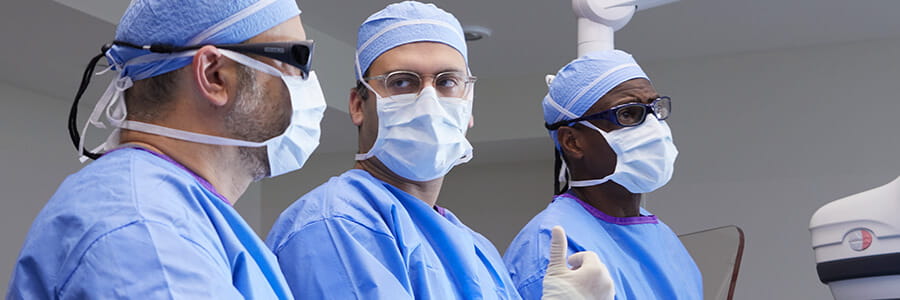What Are Heart Valves?
The heart has four valves that handle blood flow. They make sure blood flows in the right direction through the heart and to the body.
- Tricuspid valve. This valve is on the right side of your heart and separates the upper and lower chambers. It has three flaps (leaflets) that open to let blood flow from the right atrium to the right ventricle. They then close to prevent blood from flowing backward.
- Pulmonary valve. This valve controls blood flow from the right ventricle to the pulmonary artery, which carries blood to the lungs. It opens when the heart muscle contracts, pushing blood into the artery and lungs.
- Mitral valve. This valve is between the upper and lower chambers on the left side of the heart and has two flaps. It handles blood flow from the upper chamber into the lower chamber.
- Aortic valve. This valve normally has three flaps and regulates blood from the left ventricle to the aorta. The aorta is the main artery that carries blood from the heart to the rest of your body.
What Is Heart Valve Disease?
Heart valve disease happens when one or more valves in the heart doesn't work right. This problem can emerge over time, or it can be a problem you're born with.
When a valve doesn't work, blood doesn't flow through your body as it should.
Two common ways a heart valve can fail are:
- Stenosis. This happens when something blocks blood from flowing properly through the valves. A valve may narrow, the flaps may not open the right way, or a defect may block normal blood flow.
- Regurgitation. This happens when the flaps on a heart valve don't close properly. Blood can then flow backward.
Types of Heart Valve Disease
Aortic valve disease
Mitral valve disease
Tricuspid valve disease
Causes of Heart Valve Disease
Aging is one of the main causes of heart valve disease.
Some people are born with defects in a heart valve, such as two flaps instead of three. This can later cause the valve to stop working like it should.
Other causes of heart valve disease include prior infections or problems with blood flow to the heart muscle.
Heart Valve Disease Risk Factors and Complications
Some people may be more at risk of heart valve disease.
The following factors increase your risk:
- Smoking
- Diabetes
- Obesity
- AFib
- Age
How to Prevent Heart Valve Disease
The best way to prevent heart valve disease is to make changes to lower your risk factors, such as:
- Stay active.
- Eat a heart healthy diet.
- Avoid or quit smoking.
You should also see your doctor to help you manage chronic conditions like high blood pressure and diabetes.
Why Choose the UPMC Center for Heart Valve Disease?
Our center aims to provide you with world-class experts, diagnostics, and treatment in one convenient location.
We regularly research heart valve disease. This means you have access to technology or treatments other centers don't have.
The UPMC Center for Heart Valve Disease participates in a number of clinical trials designed to increase patient access to medical therapies. UPMC is currently enrolling in the following heart valve disease focused trials:
APOLLO: Transcatheter Mitral Valve Replacement with the Medtronic Intrepid™ TMVR System in patients with severe symptomatic mitral regurgitation
Clinical Trial to Evaluate Cardiovascular Outcomes in Patients Treated with the Tricuspid Valve Repair System
SMART: Medtronic Small Annuli Randomized to Evolut or Sapien Trial
SUMMIT: Clinical Trial to Evaulate the Safety and Effectiveness of Using the Tendyne Mitral Valve System for the treatment of Symptomatic Mitral Regurgitation
In addition, UPMC has a long history of participating in groundbreaking, historic research centered around extending access to TAVR across different patient populations.



















